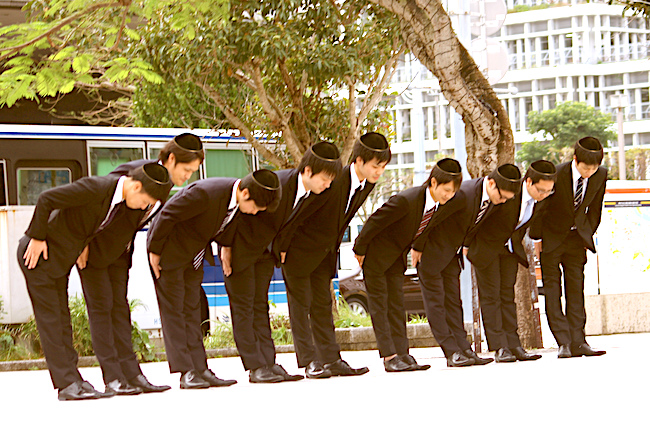“… and we bend down, bow, and give thanks before the King who reigns over kings” (ibid.). Pausing after the word thanks could imply a reference to the previous line, that we also bow down to vanity and emptiness. In order to emphasize the difference between our practice and that of others, one should pause between the words who does not save them and and we bend down (Rema 132,2).
Saying the words and we bend down in an upright position implies that one does not follow through with his words. In order to show that our actions are consistent with our stated beliefs, it is customary to bend over slightly while saying these words (Mishna Berura 132,9).
Need one bend his knees as well, as is the practice when saying Shemoneh Esrei? The word “korim” (“bend down”) implies bending one’s knees, while the word “umishtachavim” (“and bow”) implies bowing one’s body. Once again, in order to ensure that our actions are totally consistent with our words, some bend their knees slightly while bowing (Derech Hachaim 132,2).
The Arizal revealed the tremendous importance of Aleinu, considering it a vehicle to bring down the kedusha of tefilla. He expressed this with a “histachavayah gedola,” a particularly deep bow (Be’er Heitiv 132,4). On Rosh Hashana and Yom Kippur, during the repetition of Shemoneh Esrei, we take this one step further and prostrate ourselves on the ground while reciting these words.
Text Copyright © 2011 by Rabbi Daniel Travis and Torah.org


